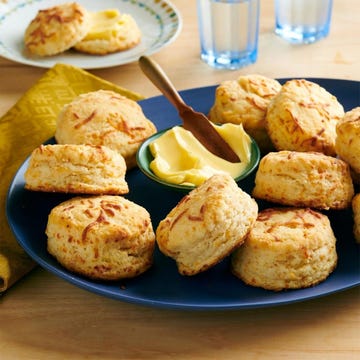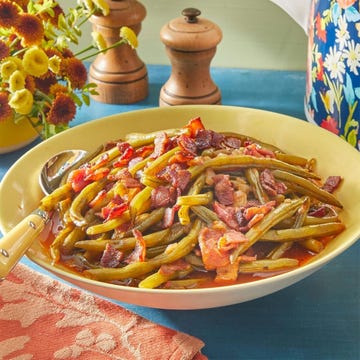It just isn't Thanksgiving without a big bowl of creamy mashed potatoes. They're just as important as the roasted turkey and dressing! Mashed potatoes is one of those dishes that seems foolproof—just cook potatoes, mash 'em up, throw in some butter, and you're set! Right? Well, if you've ever had your spuds turn out lumpy, gloopy, or runny, you know that there's a right way and a wrong way to mash potatoes.
Just so we're clear, making mashed potatoes isn't difficult, it just takes a little know-how. Here you'll find seven of the most common mashed potato mistakes and how to fix them! Read this and come the big day, you'll be prepared to make the best Thanksgiving side of all. Just don't forget to make some giblet gravy to ladle over top!
Using the Wrong Type of Potato
The two best types of potatoes for mashing are russets and Yukon golds. Both are high in starch and mash up exceptionally well. Russet potatoes tend to be a little lighter and fluffier and Yukon gold potatoes have a more buttery flavor. You can use one, or a combination of both if you'd like!
Skip waxy, low-starch varieties like red-skinned potatoes or fingerling potatoes for mashing. They don't break down as well when cooked and can become gloopy when mashed.
Cutting the Spuds Into Uneven Chunks
Before boiling the potatoes, cut them into pieces so they cook quicker. The key here is to cut the potatoes into evenly-sized chunks so that they cook at an even rate. If you have some large pieces and other tiny pieces, you'll be left with a mixture of undercooked and overcooked potatoes. Aim for pieces that are 1 1/2 to 2 inches in size. You should avoid slicing potatoes too small because they can absorb too much water and leave you with a runny mash.
Dunking the Potatoes in Boiling Water
Dropping your spuds in boiling water may seem like a smart idea, but you should actually start the potatoes in cold water and let everything heat up together. Starting them in boiling water can cause uneven cooking.
Not Draining and Drying the Potatoes
After you boil the potatoes, drain them well. Then add the potatoes right back to the hot pot set over low heat and mash. The heat allows the moisture to escape, ensuring you aren't left with watery mashed potatoes.
Overworking the Potatoes
Yes, it is possible to over-mash potatoes. Potatoes release starch when they're mashed, and when you mash them a little too much, they can release too much starch and become gummy. Your safest bet to avoid goopy mashed potatoes is to mash them by hand. It is possible to use an electric mixer to whip potatoes, but keep a very careful eye on the spuds and stop as soon as they're smooth. Avoid using a blender or food processor.
Adding Cold Butter and Cream
Hot potatoes don't absorb cold ingredients well, so make sure any butter and cream you add is at room temperature. Otherwise you could be left with lumps and pools in your potatoes. Ree Drummond uses cream cheese in her mashed potatoes and that should be softened before it's added, too!
Stirring in Too Much Cream
It can be tempting to load your potatoes full of cream, but go too far and you'll be left with sad, runny potatoes. Start with just a small amount of cream, about 1/2 cup. If your spuds seem a little too stiff, add more, a tablespoon at a time, until you reach your desired consistency.













